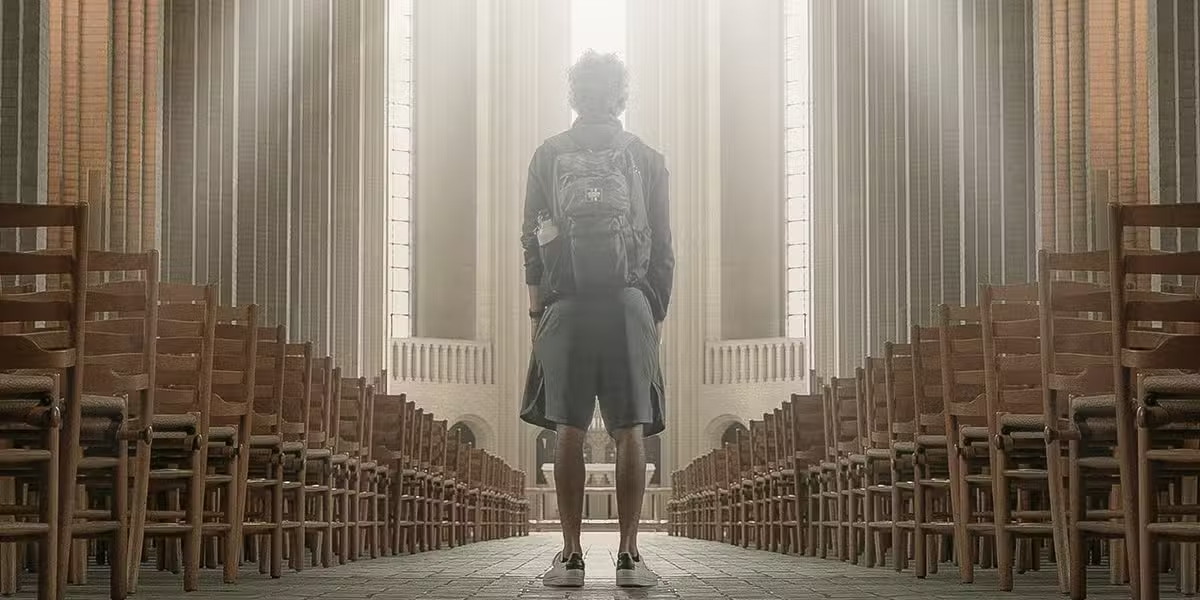My grandmother lived a very long, full life. In the 91 years before she died, she raised a family of 10 children—her crown jewel—who then produced her 28 grandchildren and four great-grandchildren. Never once did she go to a party and fail to make an impression on the other guests; and all throughout her life, she found pleasure praying the rosary and going to Mass, even being fortunate enough to pilgrimage to both Rome and Medjugorje on multiple occasions. If there was a bucket list for my grandmother, I can hardly think of something that she left unchecked. She lived a very long, full life.
Unfortunately, not everyone is so lucky.
Statistically speaking, roughly 160,000 people die every day around the world. Of those, 29,000 are children under the age of five dying from mostly preventable causes. And while overall age expectancy is up to 69 years old—the greatest it has ever been in human history—an estimated one in five people will still die between the ages of 15 and 60.
Why do 3-year-olds die? Why are so many lives cut short, leaving behind family and loved ones? Why does God allow innocent people to die?
While some may see these questions as an attack on God, a show of one’s lack of faith or antagonism against religion, I believe that our asking them is not only justified, they are at the very core of our faith. More than anything else, our Christian faith finds its merit in our ability to answer the difficult questions of life and death. In fact, I believe that Jesus wanted us to ask the question so that he could answer it.
Cue chapter 11 of John’s Gospel.
Traveling around to preach with his disciples, Jesus hears word that his close friend, Lazarus, is gravely ill. Knowing of course that Jesus has already performed six extraordinary signs thus far in the Gospel, the reader no doubt expects him to return to his friend to perform one more. But he doesn’t. Instead, and against his disciples urging, he remains where he is and lets Lazarus die. This detail is not lost on Lazarus’ sister.
Upon arriving to Lazarus’ house, now four days after his death, Martha shares with Jesus how she truly feels: “Lord, if you had been here my brother would not have died.” Even though she concludes by showing that she trusts Jesus, Martha, once again, represents how we so often feel. Why, God, when you have such power would you let this happen? Don’t you love us? She, like so many of us in tragedy, is unable to reconcile how God can be all loving and all powerful, and yet allow things like this to happen.

So why did Jesus delay? Was it because he didn’t truly care for Lazarus? Surely not, as he wept when he saw his tomb. Was it because he didn’t have the power to heal him? Surely not, as he had already shown the power to perform incredible signs of the Father’s glory.
No, the reason he delays, as he tells his disciples on the road that they are delaying, “is for the glory of God, that the Son of God may be glorified through it.” Jesus wanted Lazarus to die so that he could show how pointless a fear of death is. Jesus wanted to show that death—the inevitable event that we dread, the thing that grips our souls and leaves us in fear more than anything else—has no power over him. “I am the resurrection and the life,” he says. “Whoever believes in me, even if he dies, will live, and everyone who lives and believes in me will never die.”
Death is not a punishment from God or something to fear because death is not the end of the story. It is a beginning. It is a sign of the great power and wonder of God to give even greater life to those who lose their earthly one, a sign that he demonstrates in his own dying, offering us a path to follow. We have to die if we want to be like Jesus. We have to die if we want to rise and live with him for eternity. In allowing Lazarus to die and demystifying the experience of death—even tragic ones—Jesus calls us to follow after him, even in death, without fear.
And so he asks Martha, and I believe asks all of us when we find ourselves struck by tragedy, “Do you believe this?” Do we truly believe that Jesus has the power to conquer death? Do we believe that Jesus truly rose from the grave and that we who are baptized into his death will do the same? Do we believe that death is not the end but in fact simply a new beginning, a gateway into eternal communion with the creator of the universe?
And what would our lives look like if we truly did?
My guess is that it would still be sad. Jesus wept when he heard of Lazarus’ death because it’s always sad to lose someone we love. Whether its my 91-year-old grandmother or a 3-year-old child, death is always tragic. It is still OK to mourn.
And yet, if we truly believed what Jesus showed us in his raising of Lazarus, we could never despair or give up hope. Our lives would not be dictated by fear of death, getting old, or losing loved ones, but constantly filled with the reassuring joy that nothing—not even death—can keep us from the communion we share with each other in Jesus. Jesus did not simply “raise from the dead,” Jesus is alive. Jesus is, in the present tense. And so are we. And so is everyone we love now or ever loved in the past.
We may never know for sure why some people die tragically earlier than others, and yet we find in Jesus that the question doesn’t have the sting that it used to. Death is not a punishment or the end, but our entrance into eternal life with God and others.







